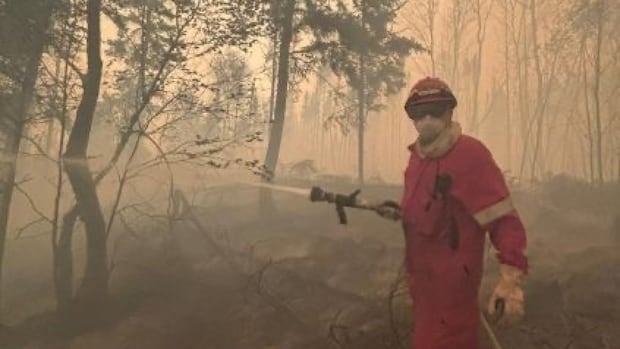
Researchers back back, then re -publish the study connecting wildfire smoke and dementia.
Last year, researchers said that they had identified a link amidst the increasing risk of wildfire smoke and dementia.
Now they are Take backPublished in Journal last November Jama neurologyAfter discovering a mistake, how they coded the data.
“It was a very small error. We had a single ‘or’ symbol, where we should have been one in thousands of lines of code ‘and’ symbol,” said Joan Casey, co-writer of the study.
They have corrected the error, the data has been crunched again and Published their paperNow, authors say that their findings suggest a much subtle link between wildfire smoke and dementia.
“We now have a fine discovery in the correct result,” said Professor Casey at the School of Public Health at Washington University.
Initially, KC and his colleagues found that when the average concentration of three years of the wildfire PM 2.5 (the average concentration of a fine particule matter in the air due to the wildfire in the area) only one micrograms per cubic meter went above the air, a dementia diagnosis increased by 18 percent.
Now, Casey believes that the growth is close to 12 percent.
This discovery is no longer statistically important, which means that the result is due to the opportunity.
But this does not mean that researchers were incorrect to identify the potential links, saying Scott Wechonthal, a professor in the Department of Epidemiology, BioStistics and Vocational Health at McGil University. This means that the link needs to be studied further.
“Data still suggests that there is a positive connection, there is to ensure that it is not just as strong as it was in their original paper.”
A Rising body of research Already combines long -term risk for air pollution with increasing risk of dementia. What is less installed, whether specific sources of air pollution – such as wildfire smoke affect the risk of dementia.
A limited number of studies have been done, such as This oneSuggesting the smoke of wildfire from agriculture and wildfire, was associated with high rates of dementia.
Wechnthal says that researchers have a long way to understand the long -term effects of wildfire smoke, especially on people’s minds.
“It is not developed as a database for the effects of the heart and lungs,” he said.